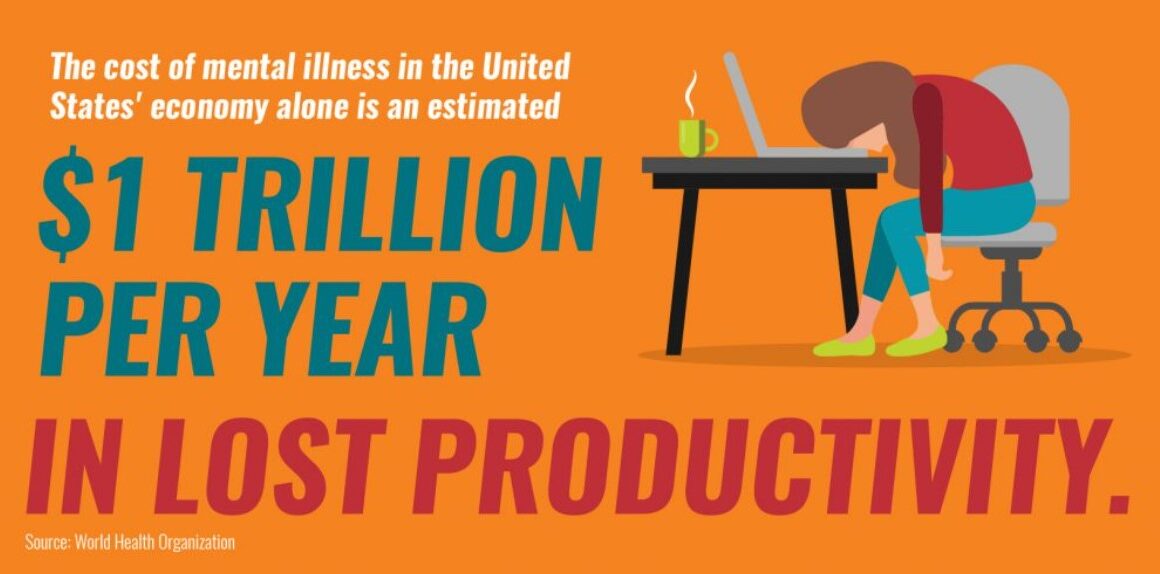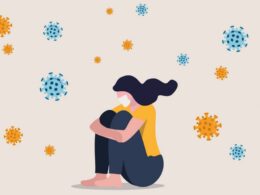According to the World Health Organization, depression and anxiety disorders cost nearly $1 trillion annually.
Nava Ashraf discusses the important link between mental health and economic productivity.
Harvard Business School
by Carmen Nobel
29 JUN 2016
In April (2016), the World Health Organization released a groundbreaking study that established a definitive link between mental health and economic productivity.
The findings were both depressing and hopeful.
- On the downside, depression and anxiety disorders cost the world nearly US$1 trillion annually.
- On the upside, every dollar invested in treating those disorders leads to a return of $4 in terms of the ability to work and thus contribute to the economy.
Nava Ashraf hopes this study will prompt more like it, both among government agencies and academic institutions. “We haven’t been as good at understanding the link between mental health and economics as we could be,” says Ashraf, an associate professor in the Negotiations, Organizations, and Markets unit at Harvard Business School. “And that’s on both sides-both in the way mental health can affect economic productivity and in the way mental health is an outcome of improvements in economic development.”
“We haven’t been as good at understanding the link between mental health and economics as we could be”
A behavioral economist, Ashraf has spent most of her career conducting field research that combines psychology and economics, often in the context of health programs and policies in developing nations. But her findings yield lessons that apply to almost everyone.
For instance, in a recent study in Lusaka, Zambia, Ashraf and her colleagues found that providing women with access to long-term birth control methods significantly improved their mental health. (The results were especially stark among women who previously had been relying on men to use condoms.)
“Indeed what we see is that women who were given access to contraception were significantly improved on dimensions of a sense of control over their lives, and significantly less likely to suffer from symptoms of anxiety and depression, like crying more than once a week, waking up several times a night, or feeling worthless,” Ashraf says.
The reason? People feel more mentally healthy when they feel a strong sense of agency in their lives. That goes for pretty much everyone. And when people feel healthier, they’re more productive, too. Hence the findings of the WHO study. “Imagine going to work where you feel a great sense of meaning, where you feel supported by others, where you feel a locus of control,” Ashraf says. “That improves mental health, and that improves productivity. So it’s a virtuous cycle.”
Shortly after the WHO study was released, the BBC World News tapped Nava Ashraf to discuss the link between mental health and economic productivity. In the following video, Ashraf stresses the importance of understanding how mental health problems can hurt the economy, and, consequently, how an economic downturn can lead to more mental health problems.
Here are some key points in the five-minute video:
- At 1:25 Ashraf talks about the vicious cycle that can happen when poverty exacerbates anxiety and depression. Then anxiety and depression exacerbate poverty because it’s hard to work let alone land a job when you’re depressed.
- At 2:25 she talks about some of the more successful mental health interventions in third-world countries, such as a cognitive behavioral therapy intervention study in Pakistan.
- At 3:40 she discusses the importance of understanding the links between economic productivity and mental health. “It’s not an either or; it’s not ‘let’s focus on mental health interventions’ vs. ‘let’s focus on economic interventions,” she says. “Both have their corresponding effect on the other.”
- At 4:45 she addresses the myth that depression is a so-called luxury of the developed world. “The feeling of hopelessness and powerlessness that can pervade a situation of poverty is widespread, and it worsens poverty by disempowering individuals,” she says.
To learn more about Ashraf’s research, about interventions to improve mental health in communities and workforces, and about the link between mental depression and a depressed economy, please see the following papers:
“ The Psycho-Social Benefits of Access to Contraception: Experimental Evidence from Zambia “ by Nava Ashraf, Marric Buessing, Erica Field, and Jessica Leight
“ 50 Million Years of Work Could be Lost to Anxiety and Depression” by Sam Jones, The Guardian, April 12, 2016
“ Cognitive behaviour therapy-based intervention by community health workers for mothers with depression and their infants in rural Pakistan: a cluster-randomised controlled trial” by Atif Rahman, Abid Malik, Siham Sikander, Christopher Roberts, and Francis Creed, Lancet, September 13, 2008
Originally published at https://hbswk.hbs.edu on June 29, 2016.












